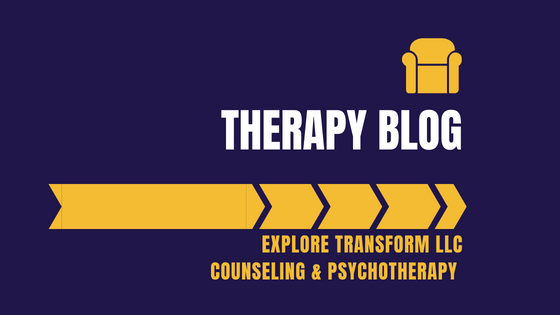 This is a fast-paced world that feels like it is spinning faster by the day: You jump each time there is a notification on your phone, your head spins from the incessant interruptions from your kids, you are constantly asked to work harder and quicker, and there are constantly new challenges from the wider environment (deteriorating air quality, intensifying storms, and increasing food prices, just to name a few). Now more than ever, there is a need to carve out space for a slower existence. Therapy can offer you that space, and it can take many different forms: Your therapist might invite you to slow down so you notice your breath, they might encourage you to slow down and scan your body, they might help you to slowly learn how to mindfully notice your emotions without having to respond to them, and they can help you to slow down your thought process so you can identify any short-circuited thought patterns. Years ago, when I trained as a psychotherapist I was also working as an attorney in London (UK). So, I know something about a frantic pace. But I also know how much of a toll it took on my physical and emotional well-being. That was when some observant person gave me the book In Praise of Slow, by Carl Honore. You’ll like this bit: “Our impatience is so implacable that, as actress-author Carrie Fisher quipped, even “instant gratification takes too long.” True, right? We are impatient, yes, but I think it is understandable when it comes to therapy. After all, we seek out therapy when we are troubled, in distress, in despair even, so why should we slow down and prolong that misery? The truth is, quick-fix solutions rarely, if ever, work. That is true of most things, whether it is a broken leg, mind, or spirit. Forming a relationship with your therapist takes time, and so it should do. Trust is not a given, and it needs to develop slowly. As a clinician, I need to take a bit of time to assess how easily you can pendulate between the past (for example, the story of your trauma) and the present. If I rush this process, I run the risk of overwhelming your nervous system and leaving you stuck in a trauma response. Important work that sometimes feels like slow work. Telling yourself that you are safe is insufficient. Instead, your body needs to feel safe and calm, and as Bessel van der Kolk pointed out by naming his book this way, The Body Keeps the Score. Often we can only heal when we slowly start to feel this in our body, when our nervous system comes out of shut-down, freeze, fight, or flight, and feels safe and calm and connected to yourself and the world around you. When I use EMDR with my clients, one of the final stages of the EMDR protocol is to do a body scan, where we check to see how the body feels when we bring up the distressing memory. Directionless rushing How can we rush the healing process when we don’t know where we are going? We need to feel better, but that is hard to identify, especially if we have grown up experiencing trauma. We can assume that our trauma responses are our natural state, and it can come as quite a surprise when we realize that we are not restless people, blank-minded, or emotionless, but we have been stuck in these trauma responses for so long. So we need to go slowly to reacquaint ourselves with who we are. Sort of like putting together the pieces of a jigsaw puzzle when we haven’t a clear picture of the end result. Again, this might take some time. In this fast-paced world, a world with so much trauma, what better way to heal, to show yourself that you are safe and of value, than to try a bit of slow healing. Take care of yourself. ~~~ I wonder if you have read anything that creates more questions in you. If you would like to explore these questions, I am here. You can reach out by calling, texting, or emailing me. Or you can use the contact form on the About page of this website. ~~~ Chris Warren-Dickins LLB MA LPC Explore Transform LLC Counseling and Psychotherapy in Bergen County, New Jersey www.exploretransform.com +1 (201) 779-6917 #trauma #psychotherapy #NewJersey Comments are closed.
|
Due to the COVID-19 health crisis, we are only offering sessions online.
Our address is 143 E Ridgewood Ave, #1484, Ridgewood, NJ 07450
Telephone: +1-201-779-6917
Lead clinician: Chris Warren-Dickins LLB MA LPC
EXPLORE TRANSFORM LLC
Our address is 143 E Ridgewood Ave, #1484, Ridgewood, NJ 07450
Telephone: +1-201-779-6917
Lead clinician: Chris Warren-Dickins LLB MA LPC
EXPLORE TRANSFORM LLC
© COPYRIGHT 2024 CHRIS WARREN-DICKINS. ALL RIGHTS RESERVED. NJ LICENCE # 37PC00618700


 RSS Feed
RSS Feed
